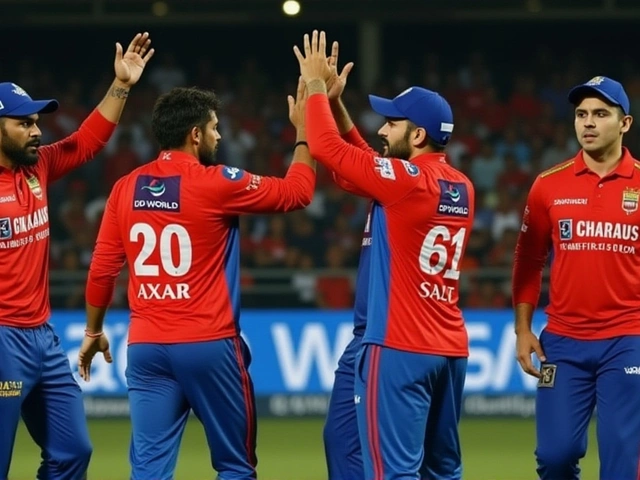Political Controversy: What’s Heating Up Across South Asia
South Asia is buzzing with charged debates, court battles, and power shifts that feel like a nonstop reality show. From Delhi's corridors to Colombo’s streets, every headline seems to spark a fresh argument. If you’ve been scrolling through news feeds, you know these stories don’t just stay in the papers – they spill into coffee chats, WhatsApp groups, and dinner tables.
India’s 2025 Vice‑Presidential Election Sparks Debate
When CP Radhakrishnan clinched the Vice‑President seat in 2025, the nation didn’t just see another name on a podium. The vote exposed a split between the ruling alliance’s tight‑rope tactics and the opposition’s cries of bias. Supporters praised his two‑term MP experience and his stint as Jharkhand governor, saying he’ll bring balance to the Rajya Sabha. Critics, however, argue the election was a backroom deal that sidelined emerging voices.
What makes this controversy sticky is the indirect voting system—MPs from both houses pick the VP, so party line loyalty often trumps public sentiment. That’s why social media erupted with memes comparing the process to a “political roulette.” The debate isn’t just about Radhakrishnan’s track record; it questions whether the system itself gives enough space for fresh perspectives.
Supreme Court Bail Hearings and Other Hot Topics
Another fire‑starter this week is the Supreme Court’s hearing on activist Navlakha’s bail plea. Navlakha, known for his outspoken criticism of government policies, faces charges that many see as a move to silence dissent. The courtroom drama has turned into a rallying point for civil‑rights groups, who argue that the bail decision will set a precedent for future activism.
While the judges deliberate, rallies pop up in Delhi, Kolkata, and even smaller towns, with people chanting slogans about free speech. The controversy highlights a bigger pattern: the tug‑of‑war between security narratives and democratic freedoms that plays out in courts across the region.
Beyond India, similar sparks fly in neighboring countries. In Pakistan, debates rage over the recent parliamentary reforms that some claim concentrate power in the hands of a few elites. Bangladesh has seen heated discussions around election‑monitoring bodies and their independence. Even Sri Lanka’s economic crisis fuels arguments about who should be held accountable for policy missteps.
What ties all these stories together is the sense that ordinary citizens are demanding transparency. Whether it’s a VP election, a bail plea, or a budget announcement, the public expects answers, not just statements.
So, how can you stay ahead of the next controversy? Follow local journalists on Twitter, join region‑specific Telegram groups, and keep an eye on opinion pieces from think‑tanks in each country. Those sources often break down the jargon and give you a clearer picture of why a particular event matters.
In short, political controversy isn’t just a headline; it’s a conversation that ripples through every corner of South Asia. By watching how these debates unfold, you’ll get a front‑row seat to the forces shaping the region’s future.
Well, folks, here's a zesty topic that's been making the rounds - "Should we give Uttar Pradesh the boot from India?" Now, while this seems like a spicy idea, let's remember that diversity, with all its hiccups and hilarity, is the essence of India. Would it be like removing the pickle from a biryani? Or like playing cricket without a ball? Fun to imagine, but the reality? Not so much. Uttar Pradesh, with all its quirks and quintessence, is as much a part of the Indian masala as any other state. So, let's chuck this idea out the window and embrace the delightful chaos that is India!




